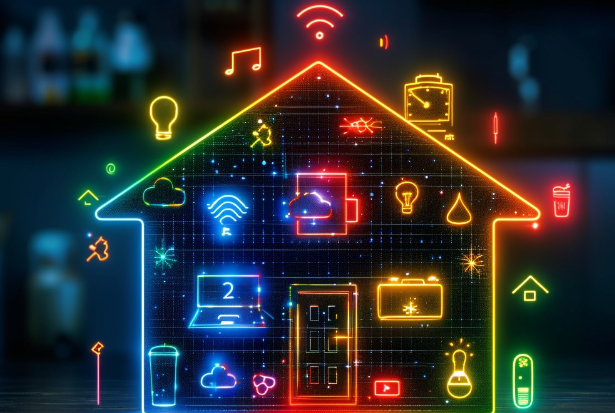Introduction:
In the age of technological marvels, home automation systems have become the cornerstone of modern living, transforming our houses into smart hubs of efficiency, comfort, and security. As we step into 2024, the realm of home automation has witnessed unprecedented advancements, offering a plethora of innovative solutions to cater to diverse needs and preferences. In this comprehensive guide, we delve into the realm of home automation to unveil the best systems that are revolutionizing the way we interact with our living spaces.
Chapter 1: Understanding Home Automation in 2024
Before delving into the specifics of the best home automation systems of 2024, it’s crucial to grasp the essence of home automation itself. Home automation entails the integration of smart devices and technologies to control various aspects of a home remotely or automatically. From lighting and climate control to security and entertainment, home automation systems offer a seamless way to enhance convenience, energy efficiency, and overall quality of life.
Chapter 2: The Rise of AI-Powered Smart Homes
One of the most significant trends shaping the landscape of home automation in 2024 is the integration of artificial intelligence (AI) capabilities into smart home devices. AI-powered systems leverage machine learning algorithms to adapt to users’ preferences, habits, and schedules, providing personalized experiences like never before. Whether it’s optimizing energy consumption, predicting user needs, or automating routine tasks, AI-driven smart homes are at the forefront of innovation.
Chapter 3: Top Contenders in Home Automation Systems
Now, let’s explore some of the best home automation systems that are leading the pack in 2024:
- Amazon Alexa Home: With its seamless integration with a wide range of smart devices and a growing ecosystem of skills, Amazon Alexa continues to dominate the home automation market. From voice-controlled lighting and thermostats to smart locks and security cameras, Alexa offers unparalleled versatility and convenience.
- Google Nest: Powered by Google’s advanced AI algorithms, Nest takes home automation to the next level with its intuitive interface and predictive capabilities. Nest thermostats learn users’ preferences over time, optimizing energy usage and ensuring optimal comfort. Additionally, Nest’s lineup of security cameras and smoke detectors provides comprehensive home protection.
- Apple HomeKit: Catering to Apple enthusiasts, HomeKit offers seamless integration with iOS devices and Siri voice commands. HomeKit-certified devices guarantee compatibility and interoperability, allowing users to create custom automation routines and control their home with ease.
- Samsung SmartThings: Samsung’s SmartThings platform serves as the central hub for connecting and controlling various smart devices, regardless of brand or protocol. With support for Z-Wave, Zigbee, and Wi-Fi devices, SmartThings offers unmatched flexibility and scalability, making it ideal for users looking to build a comprehensive smart home ecosystem.
- Hubitat Elevation: For users seeking privacy and local control, Hubitat Elevation stands out as a top choice. Unlike cloud-dependent solutions, Hubitat processes automation tasks locally, ensuring fast response times and enhanced security. With support for a wide range of devices and advanced rule-building capabilities, Hubitat empowers users to create highly customized automation setups tailored to their specific needs.
Chapter 4: Future Trends and Innovations
Looking ahead, the future of home automation holds immense promise, with several emerging trends poised to shape the industry:
- Integration of Augmented Reality (AR): AR technology is expected to play a significant role in simplifying the setup and configuration of smart home devices. By overlaying virtual instructions and tutorials onto the physical environment, AR applications can streamline the installation process and enhance user experience.
- Expansion of IoT Ecosystems: As the Internet of Things (IoT) continues to expand, home automation systems will integrate seamlessly with a broader range of connected devices, including wearables, appliances, and even vehicles. This interconnected ecosystem will enable unprecedented levels of automation and interoperability, further enhancing the smart home experience.
- Focus on Sustainability: With growing concerns about environmental sustainability, future home automation systems will prioritize energy efficiency and eco-friendly practices. From smart thermostats that optimize heating and cooling to water-saving devices and renewable energy integration, sustainable solutions will become increasingly prevalent in smart homes of the future.
Conclusion:
As we navigate the ever-evolving landscape of home automation, one thing remains clear: the future is incredibly bright. With innovations like AI-driven smart homes, advanced voice assistants, and interconnected IoT ecosystems, we are witnessing a paradigm shift in how we interact with our living spaces. By embracing these technologies and staying abreast of the latest developments, homeowners can unlock a world of convenience, comfort, and efficiency in 2024 and beyond.

